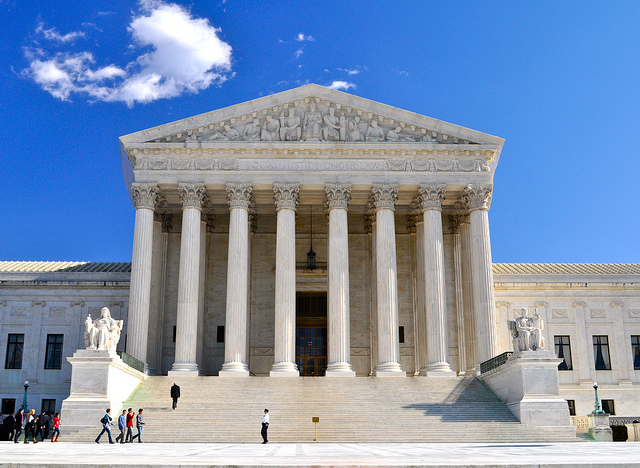The Susan B. Anthony List works to get pro-life politicians in office, and on Monday, the group unanimously won its political free speech case at the U.S. Supreme Court. Now, a lower court will be forced to rehear the SBA List’s case, as they challenge an Ohio law on free speech grounds.Fox News explains:
The case began during the 2010 election when the Susan B. Anthony List planned to put up billboards ads attacking [Ohio Congressman Steve] Driehaus. The ads accused Driehaus of supporting taxpayer-funded abortion because he supported President Obama’s new health care law. Driehaus, a Democrat who opposes abortion, claimed the ads misrepresented the true facts and therefore violated the false speech law.
The SBA List brought its own complaint in court, against the Ohio false speech law. The pro-life organization asserted that the law violated free speech rights. And even though a federal district judge and the 6th Circuit Court of Appeals claimed that the SBA List had no right to sue because of a lack of actual harm, the U.S. Supreme Court disagreed.
The Court ruled that the Ohio law did indeed violate First Amendment free speech rights, in part because it could easily and effectively scare people into not expressing their opinions or beliefs. As Justice Clarence Thomas wrote for the unanimous Court:
“[The] authority to file a complaint…is not limited to a prosecutor or an agency. Instead, the false statement statute allows ‘any person’ with knowledge of the purported violation to file a complaint.
Because the universe of potential complainants is not
restricted to state officials who are constrained by explicit
guidelines or ethical obligations, there is a real risk of
complaints from, for example, political opponents.”
Basically, then, any person or group in Ohio could potentially have their right to free speech censored by virtue of any other person – including the person they are running against – claiming they had lied. In politics (as we know all too well), claims by opposing sides are often a matter of opinion – not cut and dry truths vs. lies.
For instance, take the claim that a certain politician “supports abortion.” The politician, if he says he is pro-life, and if he has voted against partial-birth abortion and for the Hyde Amendment, might say that claim is a lie, a false statement. He would believe he has facts to back up his position.
However, his opponent might very well believe it is true that he supports abortion because he has also voted for ObamaCare (which does force taxpayers to fund abortion) and because he did not vote for a Life at Conception Act. And this opponent, as well, would have facts on her side.
Hence the beauty of our free speech rights. The politician should be free to state that he is pro-life, as he honestly believes he is, in most of his actions. And the opposing person should be free to state that the politician supports abortion, as she honestly believes he does, in important areas that matter to the electorate.
Political statements should not be deemed “false” simply because someone with a different opinion believes them to be untrue, or because an opponent would explain or classify them differently. And the law and the courts ought not to be the arbiters of whether or not a political opinion is “false” or “true.” People can honestly believe two opposite opinions, and the First Amendment allows both to be spoken.
Thankfully, the U.S. Supreme Court declined to put a damper on pro-life free speech rights, recognizing that a pro-life political group has just as much right to state their opinion to the public as any other group does.
The Supreme Court would leave it up to the public – as they should – to determine the facts behind political statements.
*For anyone interested in finding out how ObamaCare does support taxpayer funded abortions, as the SBA List claimed, go here.







